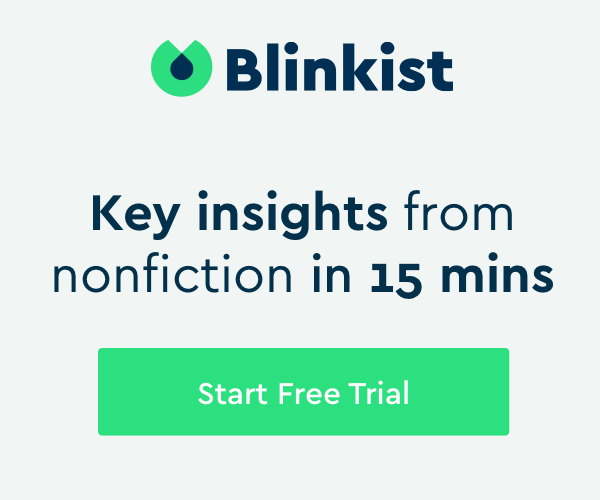In an era where personalization defines our digital experiences, education is undergoing a similar transformation through adaptive learning platforms powered by artificial intelligence. These innovative systems are reshaping how knowledge is delivered, absorbed, and applied across educational and corporate environments. By analyzing learner data in real-time, these platforms create truly personalized educational journeys that adapt to individual needs, preferences, and performance—potentially solving one of education's greatest challenges: the one-size-fits-all approach.
Adaptive learning platforms are becoming essential tools in modern education, providing tailored experiences that meet diverse learning needs. These adaptive learning platforms allow educators to track progress and intervene when necessary.
What Are Adaptive Learning Platforms?

The rise of adaptive learning platforms is a game changer, enabling learners to control their pace while receiving feedback that directly influences their learning journey using adaptive learning platforms.
Adaptive learning platforms utilize artificial intelligence to create dynamic, personalized educational experiences that continuously adjust to individual learners. Unlike traditional digital learning tools that present identical content to all users, adaptive platforms analyze real-time performance data to modify content delivery, difficulty levels, and learning paths based on each person's unique needs [1][2].
These platforms work by:
- Collecting data on learner interactions, responses, and performance
- Analyzing patterns to identify strengths, weaknesses, and learning preferences
- Adjusting content, pacing, and assessment difficulty in real-time
- Providing personalized feedback and recommendations
- Continuously refining the learning experience as more data becomes available
As one industry expert explains, “Adaptive learning is essentially about creating a personalized learning experience for each student based on their individual needs, abilities, and learning styles” [3].
The AI Engine Behind Personalization

Photo by Tara Winstead on Pexels
These adaptive learning platforms empower educators, enabling them to develop richer content and improve student engagement.
The power of adaptive learning platforms lies in their sophisticated AI algorithms that generate truly personalized learning experiences. These systems employ several key technologies:
Machine Learning Algorithms
AI analyzes historical performance data to identify patterns in how learners interact with content. For instance, if a student consistently struggles with algebraic concepts but excels in geometry, the system will adjust future content accordingly [1][3].
Incorporating adaptive learning platforms helps in the identification of various learning styles, which aids in creating more effective instructional methods.
Predictive Analytics
By examining learning patterns, AI can predict potential challenges before they become obstacles. This proactive approach allows educators to provide targeted support precisely when needed, rather than after a student has already fallen behind [3].
Natural Language Processing
Some advanced platforms incorporate NLP to analyze written responses, providing nuanced feedback on writing assignments or open-ended questions that goes beyond simple right/wrong assessments [4].
Real-World Applications Across Educational Settings

Photo by Alexa Bonilla on Pexels
Adaptive learning platforms have demonstrated impressive results across various educational contexts:
K-12 Education
Adaptive learning platforms showcase various applications, including personalized lesson plans and assessments tailored to individual performance.
For example, adaptive learning platforms like DreamBox and MATHia are leading the charge in K-12 education, fostering a more equitable learning environment.
DreamBox Learning, a leading adaptive math platform for K-12 students, has shown remarkable outcomes. Students completing just five DreamBox lessons weekly demonstrated 2.5 times more growth on standardized measures than peers with less usage. In Howard County Public School System, students using DreamBox for 60 minutes weekly saw a 60% improvement in math proficiency scores compared to control groups [5].
Similarly, Carnegie Learning's MATHia has helped students achieve 2-3 times the growth in mathematical achievement compared to traditional methods. The platform's step-by-step guidance capabilities reduced teacher intervention needs by approximately 40%, allowing educators to focus on students requiring more personalized attention [6].
Higher Education
In higher education, adaptive learning platforms facilitate a more customized learning experience, improving retention and success rates.
Moreover, adaptive learning platforms have shown efficacy in corporate training, allowing for targeted employee development based on specific needs.
At Arizona State University Online, adaptive courseware implementation across multiple subjects led to a 12% increase in course completion rates and a 28% improvement in student satisfaction scores. The university reported $13.6 million in savings through reduced dropout rates—a compelling case for the financial benefits of adaptive learning [7].
The University of Mississippi deployed McGraw-Hill's ALEKS platform in mathematics courses, resulting in pass rates for college algebra improving from 63% to 78%. Additionally, student retention in STEM majors increased by 15% over three years, addressing a critical challenge in technical education [8].
Corporate Training
In corporate environments, adaptive learning platforms are transforming how organizations develop talent:
IBM's Cognitive Learning Platform demonstrated a 40% reduction in time-to-proficiency for new employees, with 90% reporting higher engagement compared to traditional training methods. The company estimated $17 million in annual savings through more efficient training delivery [9].
Whatfix combines interactive guidance with adaptive learning paths to tailor corporate training programs based on employee skill gaps and learning styles. This approach has proven particularly effective for technical and compliance training, where knowledge retention is critical [1].
OttoLearn uses microlearning and AI to reinforce knowledge retention, adapting content frequency and difficulty based on learner performance. Its gamified elements like badges increase motivation and engagement [2].
Key Benefits of AI-Powered Adaptive Learning

The integration of AI into educational platforms offers numerous advantages that address longstanding challenges in traditional education:
Enhanced Engagement and Motivation
By eliminating redundant content and focusing on areas that require attention, adaptive platforms keep learners engaged. Gamification elements, such as those used in OttoLearn's microlearning badges, further increase motivation [2][3].
Research from 360Learning shows significantly higher completion rates when courses adapt to learners' schedules and preferences, addressing one of the most persistent challenges in digital education: maintaining learner interest [10].
Improved Learning Outcomes
The personalized approach of adaptive learning platforms has demonstrated measurable improvements in knowledge acquisition and retention. Studies show AI-gamified platforms increase engagement by up to 60% and knowledge retention by 45% compared to traditional methods [3][4].
Importantly, adaptive learning platforms prioritize inclusivity by accommodating students with diverse learning needs, making education accessible to all.
With the help of adaptive learning platforms, educators gain invaluable insights, allowing them to adapt teaching strategies effectively.
Inclusivity and Accessibility
Adaptive platforms excel at accommodating diverse learning needs, making education more accessible to learners with different abilities, backgrounds, and learning styles. By automatically adjusting content presentation and difficulty, these systems can support learners who might otherwise struggle in traditional educational settings [1][3].
Data-Driven Insights for Educators
AI analytics help instructors identify class-wide knowledge gaps and individual student needs. Platforms like Realizeit generate detailed reports on learner progress, enabling targeted interventions [1][5]. This data-driven approach allows educators to make informed decisions about curriculum adjustments and teaching strategies.
Challenges and Considerations

Photo by Stuart Bartlett on Unsplash
Despite their potential, adaptive learning platforms face several implementation challenges:
Implementation Costs
Ultimately, the future of education will hinge on how effectively we can leverage adaptive learning platforms while maintaining a balance between technology and human interaction.
Deploying AI infrastructure and training staff requires significant investment, particularly for educational institutions with limited budgets [5]. The initial content development costs for creating comprehensive adaptive learning materials can be substantial.
Data Privacy Concerns
As we progress, adaptive learning platforms will help shape adaptable learning ecosystems that are responsive to the needs of learners.
The extensive data collection required for effective personalization raises important questions about learner privacy and data security [4][5]. Educational institutions must navigate complex regulations like FERPA in the US and GDPR in Europe.
Balancing Technology and Human Touch
While AI can provide valuable insights and personalization, the human element of education remains irreplaceable. Finding the right balance between AI recommendations and educator judgment is crucial for addressing the nuanced aspects of learning [1].
As one expert notes, “The most effective implementations of adaptive learning technology are those that enhance rather than replace the role of the teacher or trainer” [4].
Future Trends in Adaptive Learning

The adaptive learning landscape continues to evolve with several emerging trends:
As technology continues to evolve, adaptive learning platforms will become even more ingrained in educational practices, fostering a culture of continuous learning.
AI-Enhanced Content Creation
Generative AI is being integrated to automatically create personalized learning materials based on individual needs, reducing the content development burden on educators [11].
In conclusion, adaptive learning platforms are revolutionizing education, ensuring that every learner's journey is personalized and impactful.
Multimodal Learning Adaptation
Newer platforms adapt not just content difficulty but also presentation format (video, text, interactive) based on learner preferences, creating truly personalized educational experiences [11].
Future advancements in adaptive learning platforms will likely focus on integrating AI to enhance content creation and learning experiences.
Emotion-Aware Adaptive Systems
Integration of affective computing to detect and respond to learner emotions and engagement levels is emerging as a frontier in adaptive learning technology [12].
Cross-Platform Learning Ecosystems
Adaptive systems that function seamlessly across devices and learning environments are creating cohesive educational experiences that follow learners wherever they go [12].
The market for adaptive learning technologies is projected to grow at a CAGR of 19.5% from 2025 to 2030, reaching $9.11 billion by 2030, indicating strong continued investment in this educational approach [11].
Conclusion
Adaptive learning platforms powered by AI represent a significant advancement in educational technology, offering personalized learning experiences that address individual needs, preferences, and performance patterns. As these technologies continue to mature, they promise to make education more effective, engaging, and accessible for learners across all contexts.
The future of education lies not in replacing human teachers but in augmenting their capabilities with AI-driven insights and personalization. By embracing these technologies thoughtfully, educational institutions and corporate training programs can create more impactful learning experiences that prepare individuals for an increasingly complex and rapidly changing world.
References
- https://whatfix.com/blog/adaptive-learning-platforms/
- https://training.safetyculture.com/blog/adaptive-learning-platforms/
- https://elearningindustry.com/understanding-adaptive-learning-how-ai-is-revolutionizing-personalized-education
- https://www.mdpi.com/2227-7102/13/12/1216
- https://www.dreambox.com/research
- https://www.carnegielearning.com/why-cl/results/
- https://edplus.asu.edu/what-we-do/innovation/adaptive-learning
- https://news.olemiss.edu/um-using-adaptive-learning-technology-improve-student-outcomes/
- https://www.ibm.com/training/
- https://360learning.com/blog/ai-learning-platforms/
- https://www.grandviewresearch.com/industry-analysis/adaptive-learning-market
- https://www.sciencedirect.com/science/article/pii/S1877050920317865




